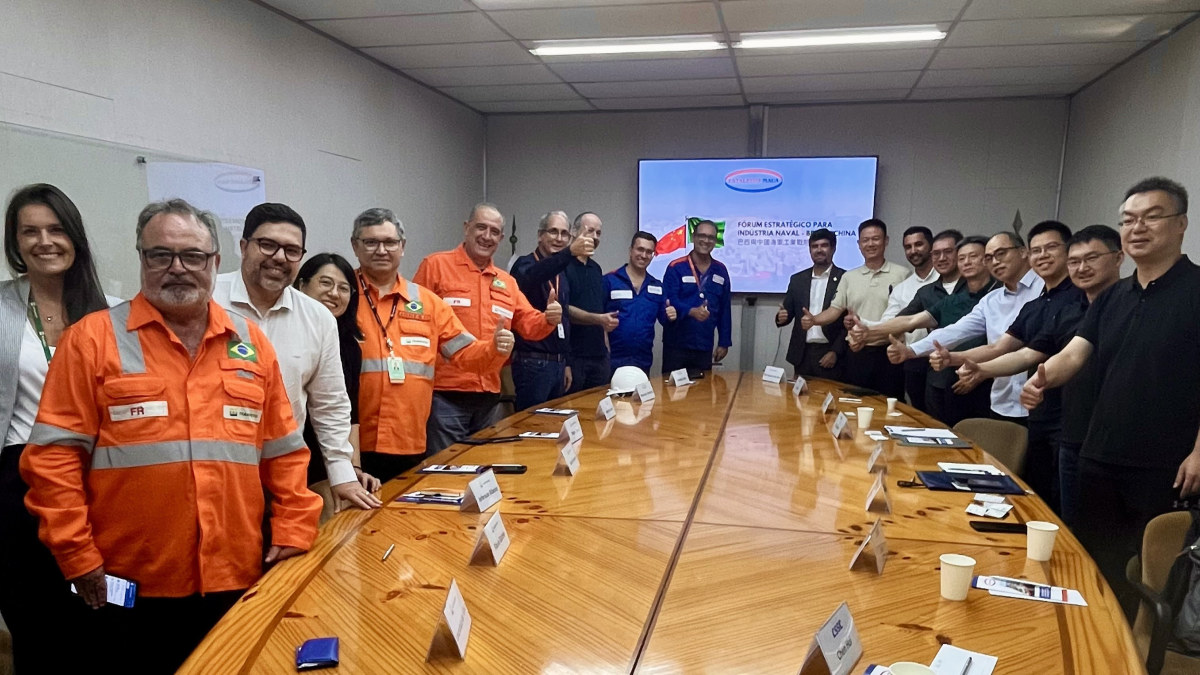Overview of Brazil’s Shipbuilding Industry
Brazil’s emergence as a significant player in the shipbuilding sector, specifically known for offshore support vessels (OSVs), showcases a remarkable transformation in the industry. Rising to become the 15th largest shipbuilder globally, the country has attracted substantial investments. However, the success story is overshadowed by a troubling past that continues to cast a long shadow over current achievements.
Current Landscape of Shipbuilding in Brazil
With billions flowing into the construction of new offshore vessels, Brazil’s shipbuilding industry has gathered momentum. The focus on innovative engineering and investments aims to enhance the domestic fleet of OSVs. Hot off the press is the lawsuit filed by Sete Brasil against Petrobras, seeking damages amounting to R$36 billion (approximately US$6.5 billion) related to the Drilling Rigs Project.
Legal Challenges and Industry Impact
This legal dispute emerges from the previous corruption scandal known as Operation Car Wash that has long troubled Petrobras, Brazil’s national oil company. In a recent announcement from Petrobras, the allegations outlined by Sete Brasil were categorically denied, described as unfounded with the company refusing to acknowledge any liability for the purported damages.
A Brief History of Sete Brasil
Sete Brasil was formed in 2011 to manage drilling contracts for Petrobras, securing contracts valued at a whopping US$89 billion to furnish 29 offshore rigs with a duration of 15 years each. However, the allegations stemming from corruption tarnished its initial success and business reputation, calling into question the efficacy of the contracts themselves.
The Lessons From Operation Car Wash
Operation Car Wash unveiled a corrupt cartel colluding between Petrobras officials and Brazil’s big construction firms, siphoning millions from lucrative contracts intended for the development of rich offshore reserves. Estimates of bribery have been dismal, with merely $224 million acknowledged by Sete Brasil, but experts believe this figure to be significantly underestimated.
The repercussions of this scandal led to massive layoffs and protracted downturns in Brazil’s shipbuilding sector, further complicating the landscape for workers and companies alike.
Revival of the Shipbuilding Sector
Despite these challenges, there’s a glimmer of hope. The investment resurgence in Brazil’s offshore oil and gas market has paved the way for new construction projects that prioritize alternative fuels and battery-hybrid propulsion systems. Starting in 2024, Petrobras has issued new tenders, breathing new life into the shipyards, with plans to produce 52 new OSVs to meet future exploration demands.
Companies like BRAM Offshore, CMM, and Posidonia Shipping are in active fleet renewal phases, engaging local shipyards like Detroit Brasil and EISA for new constructions, with scheduled deliveries extending into 2027.
Brazil’s Position in Global Shipbuilding
Thanks to the recent newbuilding surge, Brazil has climbed to the 15th rank in global shipbuilding, showcasing significant production capacity and adeptness in fulfilling industry requirements. Interestingly, major countries like Norway and the United States, which host some of the largest OSV owners, failed to secure spots within the top 15 shipbuilders globally.
Collaborations with International Builders
On the horizon are promising collaborations with Chinese shipbuilders, formalized in July during the Brazil-China Shipbuilding Industry Strategic Forum in Rio de Janeiro. These agreements aim to synergize efforts between Chinese firms such as COOEC, CSSC, and Brazilian shipyards like EBR and Rio Grande.
Shipping Demand and Order Fulfillment
Current Order Book Statistics
| Brazil OSV Shipbuilding Orderbook | |||||
| (vessels 4,000 dwt and above) | |||||
| Shipyard | No | Τύπος | Dwt | Owner | Παράδοση |
| Detroit Brasil | 10 | PSV | 50,000 | Starnav | Oct-25-Apr-27 |
| EISA | 2 | PSV | 9,000 | Posidonia Shipping | Jun-25 |
| Enseada Sao Roque | 6 | PSV | 30,000 | CMM | Mar-26-Jun 27 |
| Navship | 6 | PSV | 31,200 | BRAM Offshore | Mar-26-Jun 27 |
| source: Clarksons Research, June 2025 | |||||
Global Comparisons and Developments
While Brazil’s production ticks up, Η Κίνα διατηρεί την ηγετική της θέση στον παγκόσμιο τομέα ναυπηγικής, με ένα εντυπωσιακό νούμερο 3.665 πλοίων που ανέρχονται συνολικά σε περίπου 95,5 εκατομμύρια ακαθάριστους τόνους. Αυτό τοποθετεί την Κίνα πολύ μπροστά από άλλους ανταγωνιστές και υπογραμμίζει τη συνεχή ανάγκη για τις βραζιλιάνικες εταιρείες να καινοτομήσουν και να κατακτήσουν μερίδιο αγοράς.
Μελλοντικές Προοπτικές και Επιπτώσεις για την Εφοδιαστική
Κοιτάζοντας μπροστά, ο βραζιλιάνικος ναυπηγικός τομέας αντιμετωπίζει προκλήσεις και ευκαιρίες. Η συνεχιζόμενη ανάκαμψη από τα προηγούμενα σκάνδαλα διαφθοράς, σε συνδυασμό με νέες επενδύσεις και διεθνείς συνεργασίες, καταδεικνύει τις δυνατότητες ανάπτυξης σε μια άκρως ανταγωνιστική αγορά. Η αποτελεσματική διαχείριση της εφοδιαστικής θα διαδραματίσει καίριο ρόλο στην ικανοποίηση των απαιτήσεων των καταναλωτών, ενώ παράλληλα θα ιππεύει τα κύματα αυτής της βιομηχανικής αναγέννησης.
Συμπερασματικά, η ναυπηγική βιομηχανία της Βραζιλίας πλοηγείται σε ένα σύνθετο τοπίο που χαρακτηρίζεται από ένα αμφιλεγόμενο παρελθόν αλλά υποστηρίζεται από ελπιδοφόρες προοπτικές. Καθώς αυτός ο τομέας αναζωογονείται, πλατφόρμες όπως η GetTransport.com προσφέρουν επικερδείς, αποτελεσματικές λύσεις για τις ανάγκες φορτίου και logistics, απλοποιώντας τη διαδικασία μεταφοράς. Παρέχοντας εξαιρετικές υπηρεσίες για διάφορες απαιτήσεις αποστολής, η GetTransport.com είναι έτοιμη να ανταποκριθεί στις εξελισσόμενες ανάγκες του παγκόσμιου τοπίου των μεταφορών. Για να εξασφαλίσετε τη μεταφορά του φορτίου σας, εξερευνήστε την ευκολία και την οικονομική προσιτότητα που προσφέρει η GetTransport.com και λάβετε την πιο ενημερωμένη απόφαση για τις ανάγκες σας σε logistics. Κάντε κράτηση για τη διαδρομή σας στο GetTransport.com.

 Η ναυπηγική ανάπτυξη της Βραζιλίας θολώνει από ιστορικές προκλήσεις">
Η ναυπηγική ανάπτυξη της Βραζιλίας θολώνει από ιστορικές προκλήσεις">